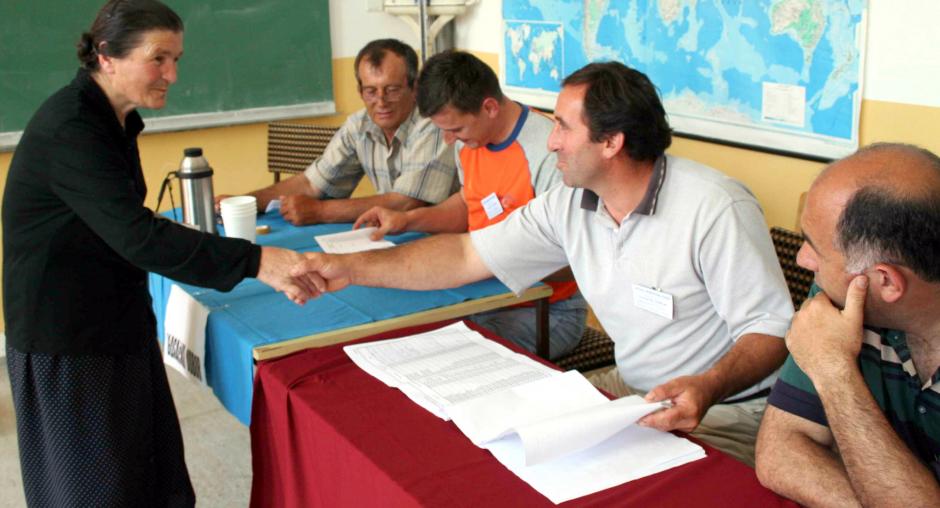Montenegro referendum overall in line with international standards

PODGORICA, 22 May 2006 - The referendum on the future state-status of the Republic of Montenegro (Serbia and Montenegro) on 21 May was conducted overall in line with OSCE and Council of Europe commitments and other international standards for democratic electoral processes. It provided the voters a genuine opportunity to decide the future status through a process of direct democracy, concluded the International Referendum Observation Mission in a statement released in Podgorica today.
The mission deployed some 365 observers from 35 countries.
"In a demonstration of direct democracy, the people of Montenegro conducted a genuine and transparent referendum, and should be congratulated for their constructive approach in making this historic decision," said Professor Nevzat Yalcintas, Head of the OSCE Parliamentary Assembly delegation, appointed by the OSCE Chairman-in-Office as the Special Co-ordinator for the OSCE short-term observers.
Jean-Charles Gardetto, Head of the delegation of the Parliamentary Assembly of the Council of Europe, said: "The high turnout showed the importance given by the people of Montenegro in deciding their future by democratic and peaceful means. They expressed their free will in a fully democratic and civil manner, something they can be proud of and that sets an example for the region. The Assembly stands ready to accompany Montenegro on the path its people have chosen."
Jelko Kacin, leader of the delegation of the European Parliament, added: "We were very positively impressed by the regularity and efficiency of the referendum process. We encourage all the citizens of Montenegro to work together for a bright, common future; their future lies in European integration and in this respect, they all are to be seen as winners. Serbia and Montenegro should closely co-operate for mutual recognition of the referendum results, for a consensual decision on the further steps and for a rapid resumption of the Stabilization and Association agreement negotiations, on the basis of each Republic's own merits."
Keith Whitmore, who led a delegation from the Congress of Local and Regional Authorities of the Council of Europe, said: "The Congress was joined for the first time by members of the Committee of the Regions. We commend the smooth and peaceful running of this historic referendum; however, a number of important issues need to be addressed such as the under-representation of women in polling boards and accessibility to polling stations for the elderly and disabled. We will continue working with authorities furthering democracy at local level in line with the European Charter of Local Self-Government."
"It has been a positive experience to follow the active and largely peaceful campaign and to see it culminate in the high turnout yesterday. Both sides have shown a political maturity which bodes well for the future of Montenegro," concluded Jorgen Grunnet, who heads the long-term Observation Mission from the OSCE Office for Democratic Institutions and Human Rights.
Election Day was calm, with more than 96% of observers characterizing the vote positively. Some procedural problems were identified with the application of ink on voters' fingers, as well as a number of instances of group voting and of voters taking photographs of their marked ballot papers. Observers assessed the count and tabulation of votes positively. In two isolated instances, observers reported suspicious activities that may have indicated vote-buying schemes.
The campaign was competitive although there were instances of negative campaigning. The Republican Referendum Commission operated in a transparent manner and both referendum options displayed a commitment to participate in its administration. There was active involvement of civil society, particularly domestic observers.
Access to media was afforded to both options although some partiality was noted, mainly in print media. All in all, media provided voters with diverse views and enabled them to make informed choices. There was no direct campaigning in the media during the pre-referendum silence period, but many instances of indirect support of independence were noted.
